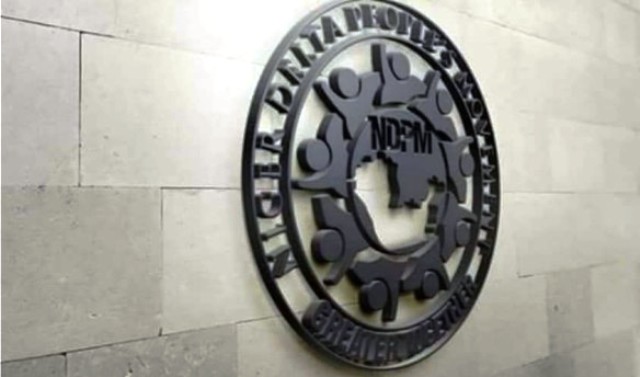Editorial
N’ Delta Summit: The Way Out

The Niger Delta area, for the most part of the five years proceeding 2015 enjoyed rela
tive peace and security which also enhanced improved production and export of oil and gas. The secret was the amnesty programmes announced by the Late Yar’Adua Presidency, which also approved certain developmental projects for the area.
These were either not met or left half way, thus, igniting another round of youth protests.
Since May, 2016, when a new phase of militancy emerged with the Niger Delta Avengers as driving force, a number of other groups, including the Reformed Niger Delta Avengers and Niger Delta Greenland Justice Mandate, have conducted one form of attack on oil and gas facilities in the Niger Delta, or the other or threatened the peace and security of the people and their precious environment. The fresh campaign appears targeted at crippling the nation’s economy by grounding crude oil production and export. That, the agitators held, to force the Federal Government to consider a comprehensive restructuring of the country along the line of fiscal federalism and guarantee resource control, or have them declare a republic.
However, following pleas by some traditional rulers, elder-statesmen and leaders of the region, and overtures by the Ministers of State for Petroleum, and Niger Delta Affairs, and Coordinator, Presidential Amnesty Programme, the Niger Delta Avengers on August 3, announced a 60-day ceasefire to create room for dialogue with the Federal Government. While making the announcement, the group listed for immediate implementation, the various reports and recommendations of Sir Henry Willinks Minority Rights Commission, Kaiama Declaration, Gen Alexander Ogomudia Committee, Ledum Mitee Technical Committee, as guide toward the much-needed restructuring.
Since then, divergent groups have yet to forge a common position on the way forward to restore peace, and engender sustainable development. These include the Niger Delta Dialogue Contact Group, headed by ex-military governor of old Rivers State, King Alfred Diette-Spiff, the Pan–Niger Delta Coastal States’ Consultative Forum, led by former Federal Commissioner for Information, Chief Edwin Kiagbodo Clark, and the Initiative for Peace, Governance and Development of the Niger Delta Region.
It was to harmonise these groups that the Federal Government, in partnership with some local and international stakeholders, scheduled a two-day Niger Delta Summit, September 26-27, 2016, at the NAF Conference Centre, Abuja. Wth the theme: ‘Towards Sustainable Peace and Development in the Niger Delta’, focus was clearly on Security and Public Safety; Development; and Public Leadership. Just when stakeholders were preparing for the dialogue, the Federal Government on September 23, suspended the planned summit.
The Tide was taken aback because the necessity for such a summit at the time could not be over-emphasised. We believe that it would have offered the people of the region another opportunity to make their case for a holistic and pragmatic development to the Federal Government and the international community. We, therefore, urge the Niger Delta stakeholders to bury their hatchets, and come together to prepare a common agenda, which we expect, should focus on strategic steps to restructure this country on the path of strong fiscal federalism, as soon as a new date is taken;
We acknowledge that certain institutions are already in place to drive the development agenda, such as the Ministry of Niger Delta Affairs, Niger Delta Development Commission (NDDC) and the Niger Delta Basin Development Authority (NDBDA), among others. Even so, we regret that these bodies have over the years been starved of adequate funds to aid transformation of the region that lubricates the wheel of this nation. Corruption and politics are also key factors that have whittled down their roles.
This is why we urge the Federal Government to immediately reconvene the summit. We expect that the President Muhammadu Buhari-led government would muster the needed political will to finally address the Niger Delta question head-long for the unity and corporate existence of the country.
The Tide insists that any agreement reached at the summit should be given timelines for implementation, while the government should begin to take action on agreed issues with commitment and sincerity of purpose. This is one plausible way of resolving the century-long Niger Delta crisis for the good of the nation.
We believe that the Niger Delta does not need another round of militancy, restiveness and violence. It rather requires peace to achieve economic growth, environmental stability, and sustainable development, which collectively can reduce poverty and crime. We urge the militants, agitators and other stakeholders to give peace a chance, as jaw-jaw has always been a better option than war-war.
At a time of economic challenges, as the one we are in, which presumpposes we guard our national treasures jealously, such appeal to insurgency and violence is an ill-wind that blows no one any good. Not even the agitators and the environment.
Editorial
As NDG Ends Season 2

Editorial
Beginning A New Dawn At RSNC

Editorial
Sustaining OBALGA’s Ban On Street Trading

-
Maritime5 days ago
Nigeria To Pilot Regional Fishing Vessels Register In Gulf Of Guinea —Oyetola
-

 Sports5 days ago
Sports5 days agoGombe-Gara Rejects Chelle $130,000 monthly salary
-
Maritime5 days ago
Customs Declares War Against Narcotics Baron At Idiroko Border
-

 Sports5 days ago
Sports5 days agoTEAM RIVERS SET TO WIN 4×400 ” MORROW” …Wins Triple jump Silver
-

 Sports5 days ago
Sports5 days agoNPFL Drops To 91st In Global League Rankings
-

 Sports5 days ago
Sports5 days agoNIGER DELTA GAMES PANACEA TO YOUTH DEV”
-
Maritime5 days ago
NIMASA,NAF Boost Unmanned Aerial Surveillance For Maritime Security
-

 Sports5 days ago
Sports5 days agoNPFL Impose Fines On Kwara United Over Fans Misconduct

